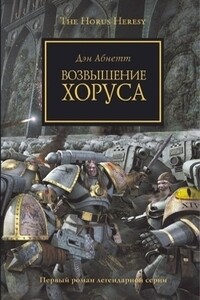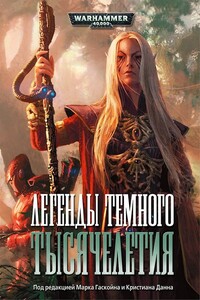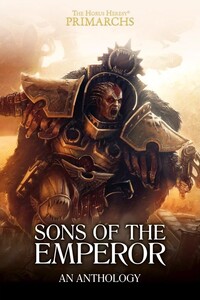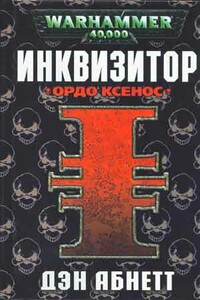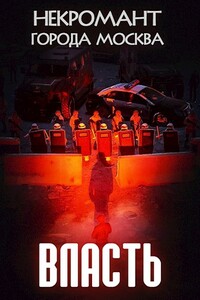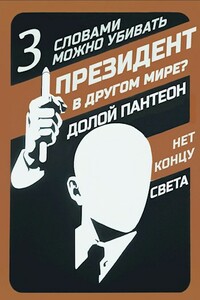There was no chance to retreat back into the hive, though Fencer knew millions of habbers in the district had fled that way. He had a post to hold. He was stationed at it with the thirty-three men remaining to him when Vegolain’s armoured column had rolled past down the Southern Highway, out into the grasslands. His squad had cheered them.
They’d been hiding in their bunkers, some weeping in rage or pain or dismay, that night when the broken remnants of the column had limped back in, heading for the city.
By then, he had twenty men left.
In the days that followed, Fencer had issued his own orders by necessity, as all links to House Command were broken. Indeed, he was sure no one in the hive believed there was anyone still alive out here. He had followed the edicts of the Vervun Primary emergency combat protocols to the letter, organising the digging of a series of trenches, supply lines and fortifications through the ruins of the outhabs, though the shelling still fell on them.
His first sergeant, Grosslyn, had mined the roadways and other teams had dug tank-traps and dead-snares. Despite the shelling, they had also raised a three hundred-metre bulwark of earth, filled an advance ditch with iron stakes and railing sections, and sandbagged three stubbers and two flamers into positions along the Highway.
All by the tenth day. By then, he had eighteen soldiers left.
Three more had died of wounds or disease by the fourteenth day, when the high-orbit flares of troopships told them Guard reinforcements were on their way planetside.
Now it was sunrise on the nineteenth day. Plastered in dust and blood, Fencer moved down the main trench position as his soldiers woke or took over guard duty from the weary night sentries.
But now he had sixty troops. Main Spine thought everything was levelled out here, everything dead, but they were wrong. Not everyone on the blasted outer habs had fled to the hive, though it must have seemed that way. Many stayed, too unwilling, too stubborn, or simply too frightened to move. As the days of bombardment continued, Fencer found men and women—and some children too—flocking to him from the ruins. He got the non-coms into any bunkers he had available and he set careful rationing. All able-bodied workers, of either sex, he recruited into his vanguard battalion.
They’d raised precious medical supplies from the infirmary unit of a bombed-out mine and they’d set up a field hospital in the ruins of a bakery, under the supervision of a teenage girl called Nessa who was a trainee nurse. They’d pilfered food supplies in the canteens of three ruined manufactories in the region. A VPHC Guard House on West Transit 567/kl had provided them with a stock of lasguns and small arms for the new recruits, as well as explosives and one of the flamers.
Fencer’s recruits had come from everywhere. He had under his command clerks who’d never held a weapon, loom workers with poor eyesight and shell-shocked habbers who were deaf and could only take orders visually.
The core of his recruits, the best of them, were twenty-one miners from Number Seventeen Deep Working, who had literally dug their way out of the ground after the main lift shaft of their facility had fallen.
Fencer bent low and hurried down the trench line, passing through blown-out house structures, under fallen derricks, along short communication tunnels the miners had dug to link his defences. Their expertise had been a godsend.
He reached the second stub emplacement at 567/kk and nodded to the crew. Corporal Gannen was making soup in his mess tin over a burner stove, while his crewmate, a loom-girl called Calie, scanned the horizon. They were a perfect example of the way necessity had made heroes of them all. Gannen was a trained stub-gunner, but better at ammo feeding than firing. The girl had proven to be a natural at handling the gun itself. So they swapped, the corporal conceding no pride that he now fed ammo to a loom-girl half his age.
Fencer moved on, passing two more guard points and found Gol Kolea in the corner nest, overlooking the highway. Kolea, the natural leader of the miners, was a big man, with great power in his upper body. He was sipping hot water from a battered tin cup, his lasgun at his side. Fencer intended to give him a brevet rank soon. The man had earned it. He had led his miners out of the dark, formed them into a cohesive work duty and done everything Fencer could have asked of them. And more besides. Kolea was driven by grim, intense fury against the Zoican foe. He had family in the hive, though he didn’t speak of them. Fencer was sure it was the thought of them that had galvanised Kolea to such efforts.
